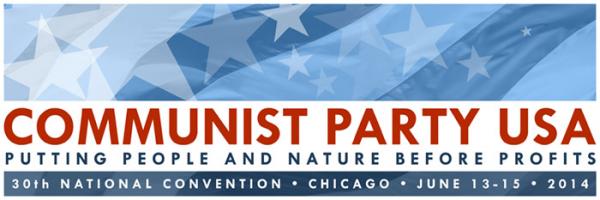
Submitted by the Program Review Committee.
Strategy is based on an in-depth assessment of the objective facts of U.S. political life. It enables us to chart a path from where we are currently to our ultimate goals, or at least to the next few steps in the process.
Strategy is not based on the way we wish things would be. It is not based on how we hope things will be. Strategy is a sober analysis of the current balance of forces. It is an analysis of the potential ways to change that balance of forces in a positive direction.
The power of the ultra-right is the main factor limiting progress in moving U.S. politics to addressing the needs of the working class and other sectors of the populace. The power of the ultra right distorts and perverts our media and on our electoral and governance systems. It must be defeated to make fundamental progress towards solving the great challenges which face our class, our country, and our world. The dysfunction inflicted by right-wing politicians on the body politic prevents finding real solutions to or even making progress on income inequality, climate change, tax reform. It stands in the way of forcing the ultra-rich to pay a greater share of the burden, of immigration reform, of expanding the electorate, and is an obstacle on many other issues.
The right-wing media machine skews our national dialogue away from real issues. It limits the ability of the country to provide even basic services such as adequate food stamps, unemployment insurance, access to women’s health care, and well-funded schools for all.
We are living with the consequences of many decades of right-wing control of too much of our electoral, administrative, and judicial systems. The election of Obama, and the power of the movement which elected him, offered a way to begin to shift away from the complete dominance of government in the interests of corporate power and wealth. Obama’s program, and his actions as President, did not offer a major break with this corporate power, but offered the potential of beginning of some restraint on some sections of the capitalist class and placing some limits on their unrestrained avarice.
We have no illusions that mainstream Democratic politics by itself will create fundamental change. We know we cannot rest our hopes on any one politician. But the power of the movement for change does hold that potential.
The ultra-right understands this. In response, they escalated their efforts to prevent even modest mainstream efforts to address real human needs. They even blocked policies they had previously supported, such as unemployment insurance. It is true that there are divisions on the ultra-right between Tea Party activists, well-funded political operations like those of the Koch brothers, other Republican political operatives who are most focused on actually winning elections, and those right-wingers who just seek conservative but realistic governance. However, most of those differences are over tactics, not long-range strategy, and over approaches to current political struggles rather than over ultimate objectives.
Creating a fundamental turn in U.S. politics requires breaking this rightwing stranglehold. It requires placing limits on the power of money in our electoral system. It requires reaching many of those who have been subjected to the production of fear and confusion in the service of the corporations and the ultra-right. Without a decisive break, our politics will remain mired in dysfunction, and the danger of fascism, always present on the right, will grow.
To make this turn requires building the broadest possible unity. That unity will be based on the power and organization of the working class, allied with many other forces and movements for change. Youth, women, and the nationally oppressed all share the need for this unity to advance the fight for their needs. The civil rights movement, women’s rights movement, youth and student movement, environmental movement, immigrant rights movement, seniors movement, and others all need this unity, and this alliance with the working class and the unions, in order to realize their objectives.
Our strategy is to work to build this necessary unity. Our strategy is to place ourselves in alliance with all these progressive forces, to be the best fighters for the needs of the people. This approach concentrates on building unity of the core forces of the movements for progress (workers, women, youth, the nationally and racially oppressed) by fighting divisions promoted by our enemies: racism first of all, sexism, homophobia, anti-communism, and other efforts to divide natural allies.
In the longer term, we need a third, people’s, party based on the working class, in order to seriously address our common challenges. But we can’t wish it into existence. We can’t build it separate from the forces that will enable it to have an impact. It would be counter productive to divide ourselves from the tens of millions who either do not yet see the need for change from our corporate-dominated politics or else do not see the possibility of that change. To separate ourselves from these tens of millions of Americans would work against the unity of all progressive forces which is essential.
To be truly revolutionary does not mean to sound the most radical, to make the most advanced demands, nor to rant the loudest against the system. It means to recognize the actually existing balance of forces and take realistic steps to shift that balance in a progressive direction. There is no contradiction between working for reforms and working for revolution-the two are integrally connected. Neither is as effective unless linked to the other. Power grows, not out of the barrel of a gun, but from the millions of people engaged in struggle. Uniting with those millions must be our first and lasting primary objective. Revolution is a fundamentally democratic act, and relies on the active participation of those millions. Without that participation, revolutionary rhetoric is hollow and self-defeating, no matter how radical it sounds.
Our strategy starts from where we actually are, where the people’s movements are, how powerful and entrenched their enemies are, what issues are foremost in the minds of millions, and what the next steps are on the road to socialism.
There are not hard and fast borders between stages of struggle. We foresee in the future building an anti-monopoly coalition to tackle the power of the monopolies and transnational corporations. While we think that is not the most pressing issue currently, this does not mean we mute our criticisms of corporate power now, or that we postpone all work against corporations for some later stage. It does mean that we first of all work to build the broadest people’s unity that is possible at the current moment. We understand that unity against the ultra-right can unite many, including even some very large capitalists, along with millions who may be confused about capitalism as the source of the problems we face but who are ready to work on finding real solutions to those problems.
The issues that the people’s movements must address are many and varied. They range from defensive struggles against the efforts of the ultra-right to gut union rights to the looming environmental crises that will increasingly demand emergency attention. They range from immigrant rights to decent schools, from basic issues of democracy and voting rights to issues of effective governance. We don’t decide in advance what those crucial issues are; the actual struggles of the people for their own needs are what determine the immediate political agenda and how it changes over time. Our strategy carries us through the ebbs and flows of struggle with a long-range vision of an economic system based on fairness, equality, justice, and real solutions to fundamental problems.
We can’t preach our way to socialism. Talking about our ideas for a socialist USA is part of our job, but not by itself, not disconnected from current struggles. People learn most from their own struggles and their own direct experiences. Working with many different kinds of people in many different kinds of struggles is the key to our winning one of the leading roles in those struggles. It is the key to millions coming to the conclusion that we are correct to argue for a fundamental transformation of our economic system. They don’t conclude that just because we tell them, they conclude that because of their own living experience of fighting for their rights, for their needs, and for a decent future for their children and grandchildren.
Our strategy helps us represent the future in the struggles of today. It helps to build long-term unity across issues, movements, and organizations. It helps us focus on the key core forces-first of all workers and their organizations-and to point a clear direction to victory. Our program, “The Road to Socialism USA” discusses our strategy in more detail.
Though many aspects of life and struggle change, our basic outlook for struggle, for progress, and for socialism remains at the center of our work.
The views and opinions expressed in the Convention Discussion are those of the author alone. The Communist Party is publishing these views as a service to encourage discussion and debate. Those views do not necessarily reflect the views of the Communist Party, its leading bodies or staff members. The CPUSA Constitution, Program, and all its existing policies remain in effect during the Convention discussion period and during the Convention.
For details about the convention, visit the Convention homepage
To contribute to the discussion, visit the Convention Discussion webpage
CONVENTION DISCUSSION
30th National Convention, Communist Party USA
Chicago | June 13-15, 2014


 Join Now
Join Now